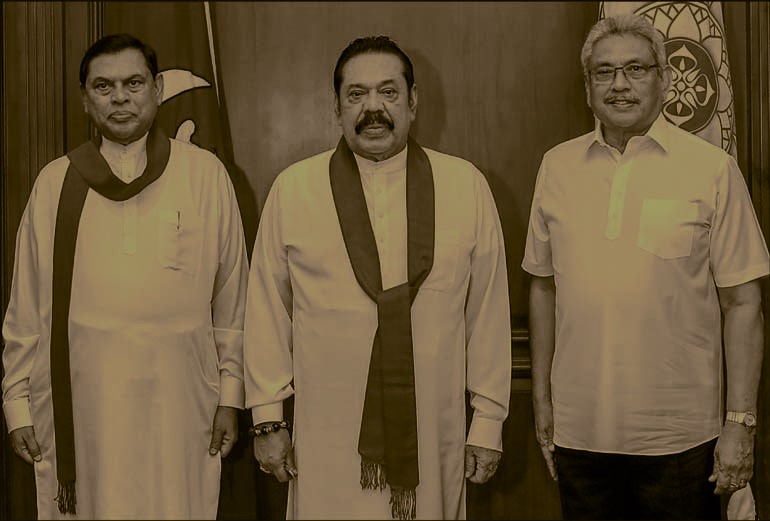In a landmark judgment, the Supreme Court today (November 14) held that former President Gotabaya Rajapaksa, former Prime Minister Mahinda Rajapaksa, former Finance Minister Basil Rajapaksa, former Governors of the Central Bank of Sri Lanka, Prof W.D Lakshman and Ajith Nivard Cabraal, former Secretary to the Treasury S.R. Attygala, former Monetary Board, and former Secretary to the President Dr. P.B. Jayasundera violated the public trust and breached Article 12 (1) of the Constitution, in their administration of the economy, leading to the economic crisis in the country.
The Court made some key observations in its judgment –
- The conduct of Respondents directly contributed to the results that led to the crisis situation.
- Respondents ought to have known and should have taken actions to resolve matters that negatively impacted the economy and not further aggravating the impact and are responsible to act in the best interest of the country
- Public officers have a responsibility to discharge their duties in the best interest of public.
- Respondents are bestowed high power to uphold public trust and are duty-bound to discharge duties according to Directives of the Constitution.
- Respondents cannot shirk responsibility by merely stating that the decisions they took were policy decisions.
- It was within full power of Respondents to prevent such calamity as they had full knowledge.
- It is clear that they did not act and take all measures to remedy the situation in the public interest.
- Cumulative actions and inactions by Respondents led to the debacle.
- The public trust reposed in Respondents was not a higher one and is bestowed on all officers, and therefore Respondents were obliged to act in a responsible manner.
- Actions, omissions and conduct of Respondents contributed to the economic crisis.
Transparency International Sri Lanka (TISL), along with co-petitioners Chandra Jayaratne, Jehan CanagaRetna and Julian Bolling, filed this Fundamental Rights Petition (SC/FRA/212/2022) on June 17, 2022, calling for action against persons responsible for the economic crisis in Sri Lanka. It was filed in the public interest, considering the lack of accountability and transparency in high level decision-making that has brought Sri Lanka to its knees.
On the request of Respondents, the Court took up the petition along with another petition (SCFR 195/2022) which was similar in nature.
The case was heard before a five-judge bench comprised of Chief Justice Jayantha Jayasuriya, PC, B. P. Aluwihare, PC, Priyantha Jayawardena, PC, and Vijith K. Malalgoda, PC, and Murdu N. B. Fernando, PC. The decision was a 4-1 split, with Justice Priyantha Jayawardena, PC dissenting.
Given that Petitioners came to Court in the interest of public and did not seek compensation for themselves, the Court was not inclined to order compensation other than costs incurred by Petitioners.
The petition by TISL, Chandra Jayaratne, Jehan CanagaRetna and Julian Bolling claimed that the respondents named in the petition were directly responsible for the unsustainability of Sri Lanka’s foreign debt, its hard default on foreign loan repayments and the current state of the economy of Sri Lanka. The petitioners called for the respondents to be held accountable for their illegal, arbitrary and unreasonable acts or omissions which culminated in the unprecedented crisis.
The Petitioners argued that the fundamental rights of the citizens to equality, freedom of expression and the right to information guaranteed under the Constitution had been violated through the actions or inactions of the respondents, among other rights.
It added that the actions and inaction of the respondents led to the shortages of food, medicine, fuel and LP Gas in the country, victimising the entire population in an unprecedented manner.
The petition highlighted that the reduction in Government revenue caused by the tax breaks, failure to reverse the tax breaks, the decision to continue servicing sovereign debt without any restructuring, and the refusal to seek the assistance of the IMF were among the main factors that caused the economic crisis.
Chandaka Jayasundera, PC, appeared for the Petitioners along with S.A. Beling, Chinthaka Fernando, Sayuri Liyanasuriya and Manisha Dissanayake.
Read the Full Judgementsc_fr_195_and_212_2022 Rajapaksas and Economic crisis:
